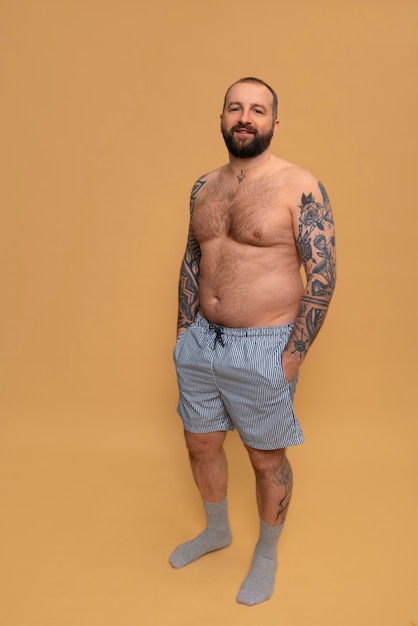
If you’re aiming to lose weight, you might think it’s all about counting calories and eating less, right? Well, that’s not necessarily true, according to Terry Fairclough, a top personal trainer and co-founder of Your Body Programme.
As a personal trainer, I encounter many opinions and queries about the best diet for weight loss. Should we count calories? How many calories should we eat? Is it better to follow a low fat, low carb, or high protein diet? Should we fast or have small, frequent meals throughout the day?
The truth is, a very low-calorie diet may lead to weight loss, but not necessarily fat loss. Although various diet approaches may suit different body types, goals, and activity levels, the one thing no one should do is undereat.
We all know someone who decides to limit calories drastically to get a beach-ready body. Sure, they might drop weight quickly, but the outcome might not be what they hope for. Losing weight through strict calorie restriction doesn’t guarantee fat loss, which is typically the goal for most people.
The Western diet today is generally larger than necessary, so many people need a slight calorie deficit because they’ve been overeating. However, it’s a common misconception that undereating is the only way to lose weight, which simply isn’t true.
When we eat, our bodies convert carbohydrates into glucose, the main fuel for our cells. If the body doesn’t use this glucose immediately, our muscles and liver store it as glycogen, which includes water. When you cut calories, you’re mostly losing stored carbohydrates and water, not fat.
Moreover, extreme calorie cutting can cause the body to hold onto fat and start breaking down protein instead. Protein is essential because the more you have, the more fat you’ll burn to sustain muscles at rest. That’s why it’s crucial to consume a balanced amount of fats, carbs, and proteins.
Despite what you might think, we need dietary fat to fuel the body, as it provides more than twice the energy of carbs or protein. Fat stored in muscles is particularly accessible during exercise, making it a consistent energy source, unlike limited glycogen stores.
Cutting calories too much can also lead to nutrient deficiencies, affecting every system in the body, especially the immune, liver, and digestive systems. Problems like fatigue, malnutrition, osteoporosis, and hormone imbalances can arise, leading to severe health issues.
Extreme calorie deficits stress the body, increasing cortisol levels, a hormone that breaks down fuel for energy. Initially, this might lead to weight loss, but long-term stress causes the body to hold onto fat, particularly around the middle, and break down protein, slowing metabolism.
Undereating can impair digestion and nutrient absorption, negatively impacting your health, workout performance, and weight loss results. Poor sleep is another issue, as low blood sugar triggers adrenaline, waking you up and disrupting detoxification, immunity, and productivity.
I’ve seen bodybuilders restrict calories to get lean, only to become ill if it’s not managed correctly. Constant calorie cutting eventually leads to severe metabolic slowdown, making any excess calories stored as fat.
The key is to consume an appropriate number of calories with the right balance of carbs, fats, and proteins for your body type, goals, activity level, height, weight, and age. It’s crucial not to cut out calories but to eat healthily and sufficient amounts of all macronutrients to keep your metabolism active.
Terry Fairclough, one of the founders of Your Body Programme, is a Personal Trainer and Nutritional Therapist who believes in fueling the body properly for optimal health and weight loss. He emphasizes eating plenty of lean proteins, healthy carbs, and fats to sustainably lose fat.




